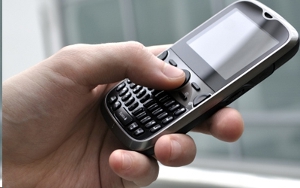PINs, bank and card data left on second-hand mobiles

Mobile phone sellers accidentally pass on personal data in used devices...
Second-hand mobile phones often contain personal data, despite the attempts of owners to wipe devices before selling them on, according to data-protection company CPP.
Just over half of second-hand mobiles and SIM cards sold online, some 54 per cent, contain sensitive personal data, a study commissioned by CPP found.

The fast-moving smartphone market encourages people to upgrade and sell on their old mobiles, increasing the risk of passing on personal dataPhoto: Shutterstock
Information retrieved from second-hand mobiles and SIM cards included credit- and debit-card details, PINs, bank-account details, passwords, phone numbers, company information and logins to social-networking sites such as Facebook and Twitter.
Private data is being passed on even though 81 per cent of people surveyed said they had wiped their mobile before selling it.
According to the report, most people who thought they had wiped their handsets tried to erase the data manually, which can often leave information intact and retrievable.
Jason Hart, senior vice president of CryptoCard, who carried out the research for CPP, said in a statement that mobiles are becoming harder for users to wipe clean.
"With new technology comes new risks, and our experiment found that newer smartphones have more capabilities to store information and that information is much easier to recover than on traditional mobiles due to the increase of applications.
"The safest way to remove all your data from a mobile or SIM card is to destroy the SIM," Hart said.
Last year the Home Office acknowledged the threat of lost and stolen mobile phones becoming a vehicle for identity fraud and announced support for products that helped protect mobile data.
The unwitting sale of personal information is becoming more common as more mobile devices flood the market, according to CPP mobile-data expert Danny Harrison: "With the rapid technology advancements in the smartphone market and new models released by manufacturers multiple times a year, consumers are upgrading their mobiles more than ever."
Harrison added that individuals need to take the threat of passing on personal information seriously.
"If they do sell or recycle [mobile phones] online or even give them to friends and family, they need to ensure they remove all their personal information and consider the serious consequences of not doing so."